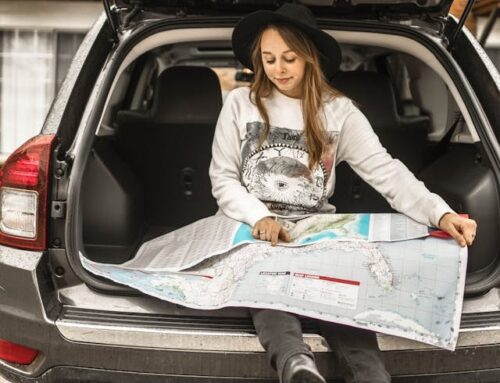Consider This Before Planning To Work Abroad

What To Consider When Wanting To Work Overseas
Worldwide, there are about 164.7 million migrant workers as of 2017, according to the International Labor Organization (ILO). Majority of these workers, who found jobs in higher-earning countries, are from low-income nations.

Finding jobs abroad is an attractive opportunity to quench the thirst to rack up cash and fulfill travel goals at the same time. Securing a job in another country is exciting, but it can be extremely challenging too. To avoid having to pack your bags within the first week of arriving, here are the important things to consider before working abroad:
Choose a reliable overseas job placement agency

It’s easy to find employment agencies that offer temporary and permanent placements in most parts of the world. But, the hard part is choosing the right provider with the right accreditation and proven experience in the industry. You’d have to do your homework and initiate contact with labor agencies in your home and destination countries to ask for guidance or to inquire about the legitimacy and reputation of your potential job placement agency, especially if it’s your first time working abroad.
What are the living conditions in your chosen destination?
Some migrant or temporary workers find jobs in their dream destinations and think everything will be rosy. Truth be told, your destination country is not a paradise, even if it seems like it at first. Most overseas workers who come from less economically-advantaged countries have to adjust to the way of living in more advanced countries to thrive. For instance, the Internet connection might be extremely slow to non-existent in your work destination, so you’ll find it hard to connect to your family members, friends. and loved ones.
Aside from access to basic utilities, you should likewise keep your attention on access to essential services. How do people go and come home from work? Are hospitals, restaurants, and stores accessible and open 24/7? Are there heaters and air conditioning for when the summer and winter become too harsh for you?
If assigned to a somewhat dangerous part of the country, are you prepared to implement security measures to avoid being robbed or subjected to serious threats to your life?
These factors may sound simple, and most overseas workers tend to brush them off even if these can have a huge impact on how they’ll cope in their new home.
How is it like to work there?

No one is expecting you to become a labor law expert, but your destination country’s basic labor rules are worth knowing if you want to have an idea of how working there looks like. It’s equally necessary to find out the following job-related information:
Salary – Would you be able to live off the income you’re going to get from working there? If you’re not living in a hotel or house that’s under the company’s expense, check out how much you’ll pay for the housing accommodation and other expenses.
Taxes – How much taxes are you expected to pay and will the company help you with these? Are there other government-mandated or voluntary deductions from your gross income?
Working hours – As a migrant worker, you’ll have the convenience of working in the same time zone as your employer. Sure, it can be difficult for the first few weeks, especially when your body clock or circadian rhythm is still trying its very best to adjust to the new time zone.
At the same time, make sure that your job is full-time so that you’ll earn higher. If your employer can only offer a part-time job, look for a second job to be more productive. By expanding your network in your destination country, you can meet more people who can become your travel guide or travel buddy. Just be sure that looking for a second job is done within legal bounds.
Will you have the job you love?
Working overseas can be daunting with the adjustments you’d have to make. Perhaps, having a job you really love and the perks that go with it can help you make living in your new home less of a struggle.
If you want to live a life full of travel adventures in faraway lands, consider being an English teacher, a flight attendant, or a hotelier. These jobs are in demand and could even allow you to satisfy your wanderlust.
Also study your destination and see whether it can allow you to practice and hone your passion or hobby. For instance, if you love to ride the waves, finding a lucrative job in a surfing destination will work well for you.
What are the job-related perks?
Look for an overseas job that comes with a slew of benefits to make your work in a foreign land more bearable.
First off, the company may have an employment recruitment program that takes care of all the work visas and other work requirements needed to have a seamless stay in your destination. You may have to seek additional information about the type that best suits your situation. This is a discussion to have with the employer if their recruitment program lacks specific details. For example, if the location is the US and you live in another country, which travel authorization process should you begin in your home country? The Green Card or visa options have specific requirements during the application process. Indeed, a green card is not readily given to a foreigner. However, another type of visa allows you to work. While at it, you may have to consider taking courses if English is not your primary language.
Or your new employer may have thought of a brilliant offer to pay for your language courses. In most cases, employers don’t offer these benefits upfront, but you can always ask and negotiate.
Pack light but have a lot of spare cash
You don’t have to take all your things with you. Leave the things you can buy in your home or with friends. Packing light not only spares you from all the trouble and energy of lugging along heavy bags. Taking only the essentials can help you save on exorbitant extra baggage fees that airlines love to charge.
Most of the items in your basic travel checklist, except for the passport, are quite easy to replace. While you can skimp on the material things like toiletries and clothes, you shouldn’t cut back on cash.
Never go to your destination with empty pockets. Having more than enough cash to tide you over difficult times, say, a minimum of three months, can help you prepare properly in cases where you’ll have payroll problems and other fund emergencies.
Conclusion
Aside from choosing your dream destination, there are more important things to consider before working overseas. Working regulations vary in every country. Some rules may be dealbreakers for you, so do your homework and research well. Better yet, consider seeking professional advice from an immigration lawyer to end up with a well-informed decision that could help in your professional and personal development.




